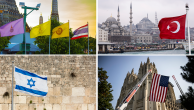
Many adults in East and Southeast Asia support free speech, are open to societal change
In East and Southeast Asia, half or more of adults say that people who disagree with their government’s actions should be able to publicly criticize the government.












